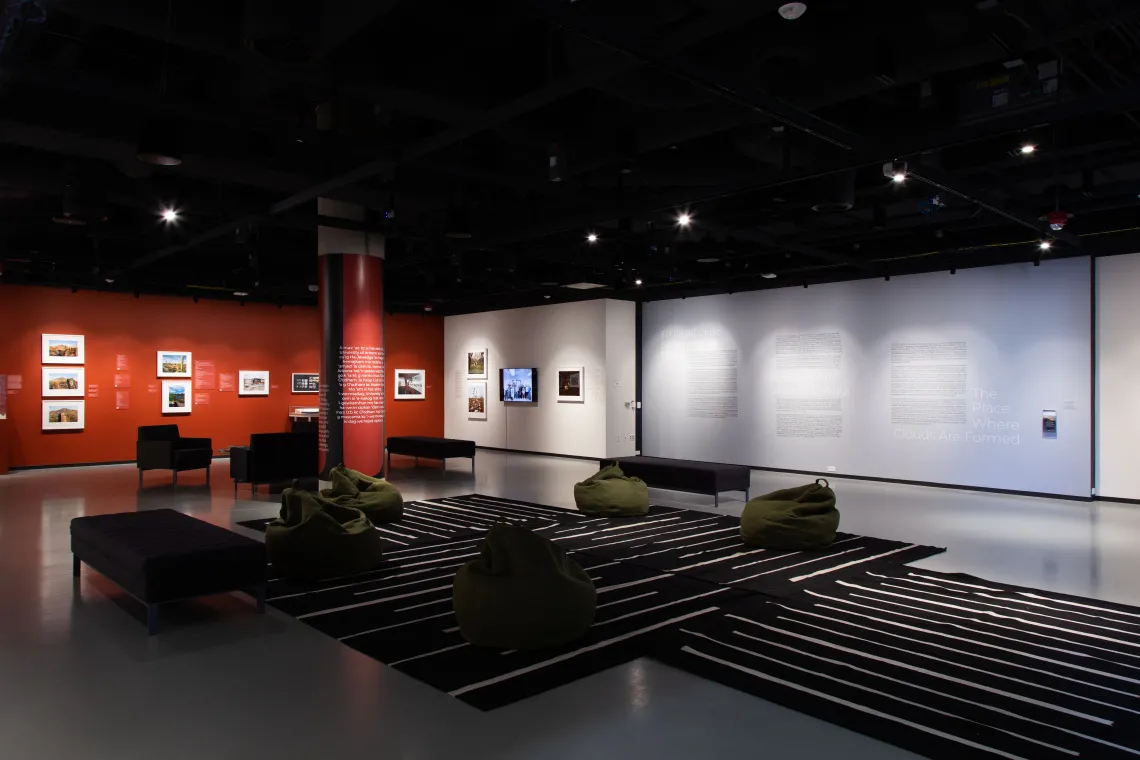U of A Center for Creative Photography receives $1M gift commitment to establish endowment for interdisciplinary education

The Center for Creative Photography at the University of Arizona has received an anonymous $1 million gift commitment to establish an endowment to support interdisciplinary exhibitions and programming at the Alice Chaiten Baker Interdisciplinary Gallery.
The Baker Gallery, encompassing 2,131 square feet, opened in 2021 and was the CCP's first on-site gallery space expansion in over two decades. With signature concrete columns and a retractable glass wall, the gallery provides a flexible site for activities and in-person events, experiences and talks.
"This transformative gift will allow the Center for Creative Photography to continue creating renowned exhibitions and programming for the U of A campus and community, enabling the continuance of its vital role as a front door to the university," said University of Arizona President Robert C. Robbins.
The endowment will support interdisciplinary programming in the gallery that demonstrates photography's influence across various disciplines while remaining responsive to contemporary themes and challenges. It also will serve to enhance campus and community partnerships.
"The Alice Chaiten Baker Interdisciplinary Gallery strengthens the center's relationship with the academic mission of the university," said Andrew Schulz, vice president for the arts and dean of the College of Fine Arts. "This very generous gift to create an endowment to support the interdisciplinary work is critical to our future programming. I sincerely thank the donors who believe in the center's vision and the important role it plays at the University of Arizona."
When the gallery opened, CCP presented its first digital interdisciplinary exhibit, "Photojournalism 20/20: A Think Tank for an Unimaginable Present," which is now available on the CCP Interactive app. The project combines photography, lectures, essays and journals from the center's collection juxtaposed with 2020 photojournalism, including mainstream news, social media and information from thought leaders in photography.
"The Baker Gallery reflects CCP's dedication to enhancing public engagement with photography in both physical and digital realms," said Todd J. Tubutis, CCP director. "It serves as a central hub for promoting innovative art practices, research and discussions, while also leading the way in exploring new methods for curating photographic collections."
Other interdisciplinary exhibitions in the Baker Gallery have included "Trees Stir in Their Leaves," "8-Track" and "W. Eugene Smith: A Life in Pictures." This spring and summer, the gallery featured "The Place Where Clouds Are Formed" in collaboration with the University of Arizona Poetry Center. The exhibition was an interdisciplinary collaboration between photographer Gareth Smit, writer-researcher Martín Zícari, and University of Arizona Regents Professor – and Tohono O'odham poet and scholar – Ofelia Zepeda. Designed to explore the "intersection of spirituality, migration and current and historical policies" that have shaped the Sonoran borderlands, the project – now in its fifth iteration over six years – represents not only a unique collaboration between university faculty members and CCP, but also with the broader Tohono O'odham community.
"The CCP is a fantastic draw for the university and Tucson communities, and this gift will only increase the quality of its already world-class programming and exhibitions," said John-Paul Roczniak, president and CEO of the University of Arizona Foundation. "We are incredibly grateful to these donors for recognizing the CCP's important contributions to the community and for supporting arts priorities of the Fuel Wonder fundraising campaign."
This gift to CCP is part of Fuel Wonder, the university's $3 billion fundraising effort. Gifts already made to the campaign are giving every student access to a cohesive ecosystem of support, powering new insights into the human immunome, and transforming research in areas including cancer, engineering, space sciences and the humanities.

